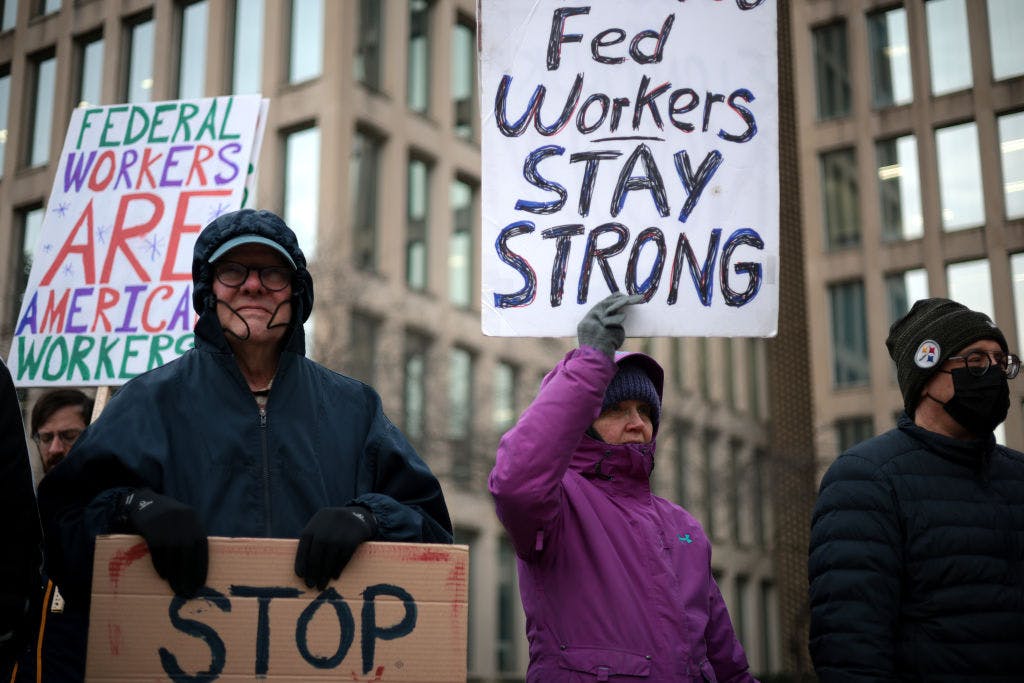Trump’s federal worker resignation offer blocked by judge
The scale of the administration’s DOGE-led federal job cuts now hangs in the balance.
On Thursday evening, a federal judge temporarily blocked President Trump’s deferred resignation program for federal workers — just hours before the offer’s original midnight deadline.
The ruling to pause the government-shrinking plan — which, by way of an opt-in email entitled “A Fork in the Road,” gave federal employees the option to leave their jobs by the end of February in exchange for pay until September 30 — comes amidst questions of the offer’s legality, after lawsuits from several federal unions.
Following the ruling, employees received an email informing them that the offer deadline would be extended to Monday, though whether or not it will be pushed back further will be decided at a hearing scheduled for Monday afternoon. Even so, a White House official told CNN that at least 65,000 federal workers have now opted in, more than 3% of the ~2 million employees who received the offer.
Fed frenzy
Now the scale of the administration’s effort to reduce the size of the federal bureaucracy hangs in the balance. Indeed, the US Agency for International Development has already been dismantled, following foreign aid hitting a recent high of 1.17% of the US budget in FY 2023.
Headed by Elon Musk’s DOGE initiative, the plan targets workers at various agencies, including many at the Department of Health and Human Services and the Department of Education.
But by far the biggest chunk of America’s federal employee roster comprises those in defense or security-related agencies, with departments related to Veterans Affairs (21.4% of employees), the Army (9.7%), and the Navy (9.5%) alone accounting for almost 1 million workers in total.
